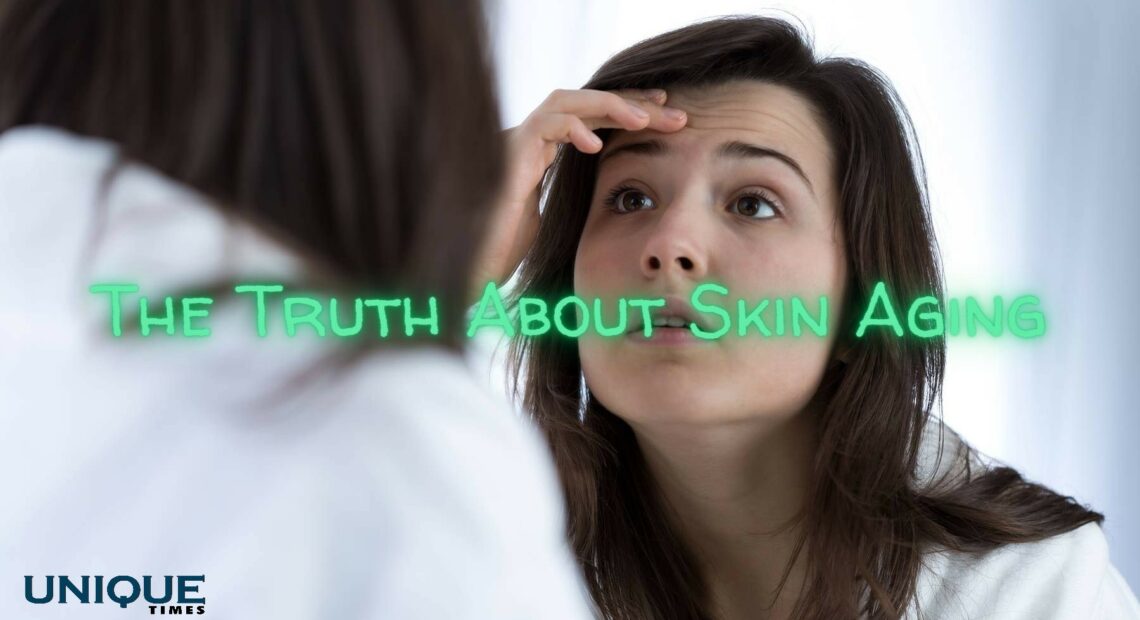Understanding Skin Aging and the Impact of Melanin on Wrinkle Formation

The human skin, a complex and dynamic organ, undergoes a multitude of changes over time, with aging being a natural and inevitable process. One of the primary concerns associated with skin aging is the formation of wrinkles, a phenomenon influenced by various intrinsic and extrinsic factors. In recent research, the role of melanin, the pigment responsible for skin color, has garnered significant attention in understanding the mechanisms underlying wrinkle formation. Let’s delve into the intricate world of skin aging and explore the nuanced impact of melanin on the development of wrinkles.
Skin Aging: The Biological Underpinnings and Extrinsic Influences The process of skin aging is a multifaceted phenomenon influenced by a combination of intrinsic biological factors and extrinsic environmental influences. Intrinsic aging, driven by genetic predispositions and hormonal changes, leads to a gradual decline in collagen and elastin production, resulting in diminished skin elasticity and the formation of fine lines and wrinkles. Concurrently, extrinsic factors such as prolonged sun exposure, pollution, and lifestyle choices exacerbate the aging process, accelerating the development of visible signs of skin aging.
Melanin: Function, Distribution, and Photoprotection Melanin, the primary pigment responsible for determining skin color, plays a crucial role in shielding the skin from harmful ultraviolet (UV) radiation. Produced by specialized cells called melanocytes, melanin is distributed unevenly throughout the skin, providing varying degrees of photoprotection to different skin types. The intricate interplay between different types of melanin, including eumelanin and pheomelanin, influences the skin’s response to UV exposure, impacting the skin’s aging process and susceptibility to wrinkle formation.
The Role of Melanin in Wrinkle Formation: Insights from Scientific Studies Emerging research suggests that melanin, beyond its photoprotective role, may play a complex and nuanced role in modulating the development of wrinkles. Studies have indicated that the distribution and activity of melanin within the skin may influence the skin’s response to oxidative stress and UV-induced damage, thereby impacting the skin’s structural integrity and resilience. The interaction between melanin, free radicals, and collagen degradation pathways highlights the intricate relationship between melanin levels and the progression of wrinkle formation.
Cultural Perceptions and Diverse Skin Aging Experiences Beyond its biological implications, the impact of melanin on wrinkle formation intersects with cultural perceptions of beauty and aging. Across various cultures, diverse notions of skin aging and beauty standards underscore the significance of melanin-rich skin in mitigating the visible signs of aging. Embracing cultural diversity and redefining beauty norms within the context of melanin-rich skin underscores the importance of inclusive skincare practices and the celebration of diverse aging experiences.
Inclusive Skincare Approaches: Nurturing Melanin-Rich Skin and Addressing Wrinkle Concerns As the skincare industry continues to evolve, the importance of inclusive skincare approaches tailored to melanin-rich skin becomes increasingly paramount. From the formulation of targeted skincare products enriched with antioxidants and melanin-stabilizing agents to the promotion of sun-protective measures and holistic skincare routines, nurturing melanin-rich skin involves embracing personalized and culturally sensitive approaches that cater to the unique needs and challenges associated with diverse skin types.
Future Perspectives: Advancements in Anti-Aging Research and Melanin-Targeted Interventions In the realm of anti-aging research, the integration of cutting-edge technologies and a deeper understanding of the role of melanin in wrinkle formation hold promising prospects for the development of targeted interventions and skincare solutions. From the exploration of melanin-targeted antioxidant therapies to the advancement of personalized skincare regimens, the future of anti-aging skincare lies in the convergence of scientific innovation, cultural inclusivity, and a holistic approach to skin health and well-being.
Picture Courtesy: Google/images are subject to copyright








